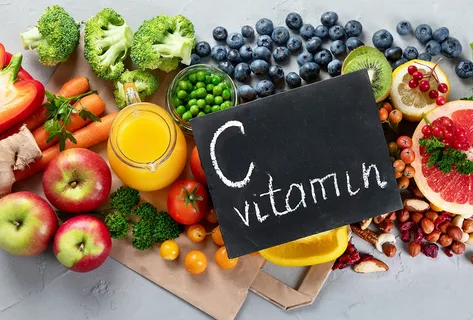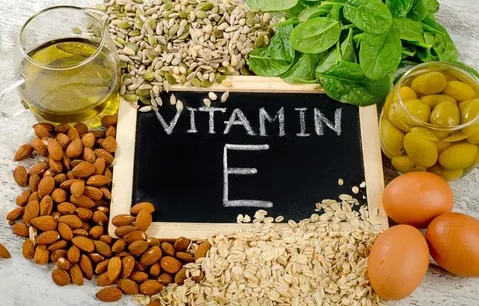Vitamin C is essential for maintaining a healthy immune system, promoting skin health, and supporting overall well-being. While citrus fruits are often highlighted as prime sources of this vital nutrient, berries offer a delicious and versatile alternative. This guide will explore how you can enhance your vitamin C intake using various types of berries, their benefits, and practical ways to incorporate them into your diet.
The Importance of Vitamin C
What is Vitamin C?
Vitamin C, also known as ascorbic acid, is a water-soluble vitamin crucial for various bodily functions. It acts as an antioxidant, helps in the synthesis of collagen (a protein important for skin, cartilage, and bones), and aids in the absorption of iron from plant-based foods. Its role in immune function and cellular repair makes it a vital nutrient for overall health.
Recommended Daily Intake
The recommended daily allowance (RDA) for vitamin C varies by age, sex, and life stage. Generally, adults should aim for 65-90 mg per day. Pregnant and breastfeeding women have slightly higher requirements. Meeting these needs through diet and supplementation is essential for optimal health.
Why Choose Berries for Vitamin C?
Nutritional Powerhouses
Berries are not only delicious but also pack a powerful nutritional punch. They are rich in antioxidants, fiber, and essential vitamins, including vitamin C. Unlike some fruits that are high in sugars, many berries offer a low-calorie, nutrient-dense option for boosting your vitamin C intake.
Types of Berries and Their Vitamin C Content
Here’s a closer look at some of the most popular berries and their vitamin C content:
Strawberries
Strawberries are a top source of vitamin C. One cup of halved strawberries provides approximately 89 mg of vitamin C, nearly the full daily requirement for adults. They are also rich in antioxidants, which can help combat oxidative stress.
Blueberries
Blueberries are another excellent choice, though they contain slightly less vitamin C compared to strawberries. A cup of blueberries offers around 14 mg of vitamin C, along with a wealth of antioxidants and fiber.
Raspberries
Raspberries provide about 32 mg of vitamin C per cup. They are also high in fiber and antioxidants, making them a great addition to a healthy diet.
Blackberries
Blackberries are rich in vitamin C, offering about 30 mg per cup. They are also a good source of fiber and other essential nutrients.
How to Incorporate Berries into Your Diet
Fresh Berries
Eating fresh berries is one of the simplest ways to boost your vitamin C intake. You can enjoy them as a snack, add them to breakfast foods, or use them in various recipes.
- Smoothies: Blend fresh or frozen berries into a smoothie with other fruits, vegetables, and a source of protein like yogurt or milk.
- Salads: Toss berries into salads for a burst of flavor and nutrition.
- Oatmeal and Yogurt: Top your oatmeal or yogurt with fresh berries for added taste and nutrients.
Frozen Berries
Frozen berries are a convenient alternative when fresh berries are out of season. They retain their vitamin C content and are often less expensive.
- Frozen Smoothies: Use frozen berries in smoothies for a thicker texture.
- Baking: Incorporate frozen berries into muffins, bread, or other baked goods.
Berry-Based Recipes
Experiment with berry-based recipes to increase your vitamin C intake in delicious ways.
- Berry Compote: Cook berries with a bit of honey to make a compote that you can use as a topping for pancakes, waffles, or ice cream.
- Berry Sauce: Create a simple berry sauce to accompany meats or as a base for dressings.
- Berry Jam: Make homemade berry jam to enjoy on toast or as a filling for pastries.
Benefits of Eating Berries
Antioxidant Properties
Berries are loaded with antioxidants, which help neutralize free radicals in the body. This can reduce inflammation and lower the risk of chronic diseases such as heart disease and cancer.
Heart Health
The high fiber and antioxidant content in berries support heart health by improving cholesterol levels, reducing blood pressure, and enhancing overall cardiovascular function.
Skin Health
Vitamin C is crucial for collagen production, which helps maintain skin elasticity and reduce the appearance of wrinkles. Berries’ antioxidant properties also contribute to healthier, more radiant skin.
Digestive Health
Berries are rich in dietary fiber, which supports digestive health by promoting regular bowel movements and preventing constipation.
Tips for Maximizing Vitamin C Absorption
Combine with Other Nutrients
To enhance the absorption of vitamin C, pair berries with foods high in iron, such as leafy greens or lean meats. Vitamin C improves the absorption of non-heme iron (found in plant-based foods).
Avoid Overcooking
When using berries in recipes, avoid overcooking them, as prolonged heat can degrade vitamin C. Use them fresh or add them towards the end of cooking.
Store Properly
Store fresh berries in the refrigerator and consume them within a few days to maintain their vitamin C content. Frozen berries should be kept in the freezer until needed.
FAQs
How many berries do I need to eat to meet my daily vitamin C requirement?
Eating a cup of strawberries or a mix of other berries can help you meet a significant portion of your daily vitamin C requirement. For example, a cup of strawberries provides almost 90 mg of vitamin C, which is close to the daily recommended intake.
Are frozen berries as nutritious as fresh berries?
Yes, frozen berries retain most of their nutritional value, including vitamin C, and can be a convenient and cost-effective alternative to fresh berries.
Can I get enough vitamin C from berries alone?
While berries are a great source of vitamin C, it’s important to include a variety of fruits and vegetables in your diet to meet your overall nutrient needs. Consider incorporating other sources of vitamin C, such as citrus fruits and bell peppers.
How can I incorporate berries into a low-sugar diet?
Opt for berries with lower sugar content, such as raspberries and strawberries. Use them in moderation and combine them with other low-sugar foods, such as yogurt or leafy greens.
Are there any health benefits of eating berries beyond vitamin C?
Yes, berries are rich in antioxidants, fiber, and various vitamins and minerals that support overall health. They can help reduce inflammation, support heart health, and improve digestive function.
Can I use dried berries to boost my vitamin C intake?
Dried berries have a higher concentration of sugars and fewer vitamins compared to fresh or frozen berries. They are not as effective for boosting vitamin C intake, so it’s better to consume them in moderation and focus on fresh or frozen varieties.
How can I store fresh berries to maximize their shelf life?
Store fresh berries in the refrigerator and avoid washing them until you are ready to eat them. This helps prevent mold and spoilage. For longer storage, consider freezing them.
Are there any potential side effects of consuming too many berries?
Berries are generally safe and healthy when consumed in moderation. However, excessive consumption can lead to gastrointestinal discomfort or an overload of natural sugars. Balance your intake with a variety of other fruits and vegetables.
Can I increase vitamin C intake by using berry supplements?
Berry supplements can provide a concentrated dose of vitamins and antioxidants. However, whole berries offer additional nutrients and benefits that supplements may lack. It’s best to prioritize whole foods in your diet.
How can I tell if berries are fresh and ripe?
Look for berries that are plump, firm, and brightly colored. Avoid berries with signs of mold, bruising, or excessive softness. Fresh berries should have a pleasant aroma and should be free from any off smells.
Conclusion
Berries are a delightful and nutritious way to boost your vitamin C intake. With their rich flavor and health benefits, they make an excellent addition to a balanced diet. Whether you enjoy them fresh, frozen, or in recipes, berries offer a tasty and effective means of enhancing your vitamin C consumption and supporting your overall health.
- NCTF 135 HA: A Breakthrough In Anti-Aging Treatments In Kingston - June 1, 2025
- The Growing Demand For THC Beverages Among Gen Z - May 31, 2025
- Skin Pen Microneedling Near Albury, Surrey - May 31, 2025



